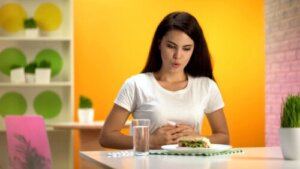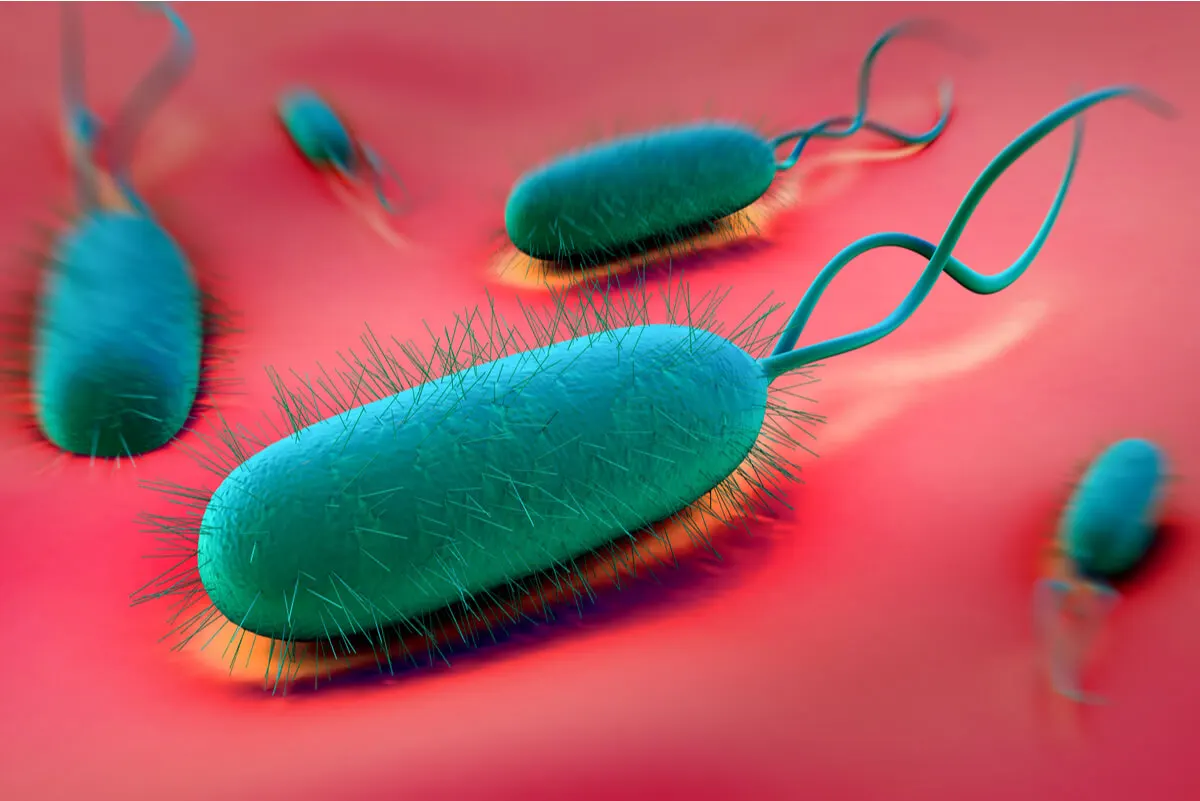Myths and Truths About Food for Gastritis


Written and verified by the nutritionist Maria Patricia Pinero Corredor
Gastritis is an inflammatory disease of the mucosa that lines the stomach walls and can either be chronic or acute. However, there are many myths and facts about how much the diet should vary for gastritis. Keep reading and find out about the correct food for gastritis.
Gastritis usually causes certain symptoms such as the following:
- Pain and discomfort in the stomach, in the upper abdomen
- Fullness during and after meals
- Involuntary weight loss
- Nausea and vomiting
- Lack of appetite
Because it’s so common, people often have preconceptions about this illness. In this article, we’re going to look into the myths and truths about the correct food for gastritis.
Myths and truths about gastritis
In popular culture, much is said about gastritis, but there’s only one truth, and, in this article, we’ll tell you what is true and what isn’t.
Read also: How to Fight Heartburn and Gastritis with Home Remedies
Myth 1: Gastritis is an infection
This isn’t true. The truth is that this disease can be caused by many factors, but one of the main ones is bacteria, and more specifically, the Helicobacter pylori bacteria. In fact, it causes 90% of cases.
H. pylori bacteria are common in developing countries. It can live in the body without causing symptoms, but it’s also capable of causing the development of ulcers, stomach cancer, and gastritis.
Gastritis is thought of as an infection, when in fact it may be the consequence of an infection. An infection is an invasion and multiplication of pathogens in the body. In this case, the infection is H. pylori and the resulting inflammation is gastritis.

Myth 2: If you eat citrus fruits you’ll get gastritis
Not true. Citrus fruits are acidic, but they don’t have the ability by themselves to cause gastritis. What they can cause is gastric reflux.
Gastroesophageal reflux is when stomach contents made up of hydrochloric acid, pepsin, and bile salts ascend into the esophagus and cause damage and discomfort. Citrus fruits cause reflux by lowering the pH of the stomach and stimulating the movement of liquid.
Myth 3: Starving yourself causes gastritis
This actually could be possible. If you fast frequently, then this can cause gastric juices to come into direct contact with the empty stomach and increase the irritation of the mucosa.
In addition, in this situation there’s another aspect that can worsen the condition, as a certain amount of food can be ingested, making the stomach more sensitive. The best recommendation is to schedule 5 small meals a day to prevent this.
Myth 4: Analgesics and antibiotics cure gastritis
Not true. Neither painkillers nor antibiotics are able to cure gastritis or soothe it.
Painkillers are used against pain. Antibiotics, on the other hand, are used to fight infections caused by bacteria. Antibiotics are only prescribed if the gastritis was caused by a Helicobacter pylori infection.
Another medication recommended to treat gastritis is antacids. However, these aren’t able to cure, but simply to relieve symptoms for a short period of time.
What is prescribed for gastritis are proton pump inhibitors, which act by reducing the amount of gastric juice secretions. That’s why they’re called gastric protectors.
Discover more here: 5 Infusions that Support the Treatment of Gastritis
Food for gastritis: recommendations
We should ensure that we follow an adequate diet if we have gastritis. Here are some nutritional recommendations.
Gastritis requires a gentle diet that doesn’t irritate the mucosa. In addition, the food should be chewed slowly and we should always eat sitting down in order to prevent the accumulation of gases.
As for liquids, they should be taken in small gulps, and you should avoid drinking too much at mealtimes. The temperature of both food and drinks should be lukewarm.
Drinks such as coffee, tea, alcohol, and carbonated beverages should be avoided. Tobacco, fatty and spicy foods, including ground pepper, mustard, and vinegar should be avoided.
Recommended food
Before talking about the recommended food for gastritis, we also need to mention types of cooking. We should use simple cooking methods, such as grilling, broiling, baking, or boiling.
The following can be eaten:
- Pasta
- Rice
- Potatoes
- White bread
- Cooked vegetables without skin
- Cooked fruits in compote or preserves
Regarding proteins, the following are advised:
- Lean meats
- Fish
- Egg whites
- Skimmed dairy products and cheese
Foods to eat in moderation
The following foods can be eaten, but in moderation:
- Sausages
- Raw vegetables
- Chocolate and pastries
- Products rich in fiber
- Ripe fruit with their skin
- Whole milk, cream, and butter
Eat well and feel good
The idea of this type of diet is to relieve your discomfort. This will work in combination with the treatment provided by the specialist.
If you suffer from gastritis or have the symptoms, we recommend seeing a gastroenterologist and not getting taken in by all the myths about this condition.
All cited sources were thoroughly reviewed by our team to ensure their quality, reliability, currency, and validity. The bibliography of this article was considered reliable and of academic or scientific accuracy.
- Mayo Clinic. Enfermedad por reflujo gastroesofágico. 2021. Disponible https://www.mayoclinic.org/es-es/diseases-conditions/gerd/symptoms-causes/syc-20361940
- Mayo Clinic. Infección por helicobácter pylori. 2021. Disponible https://www.mayoclinic.org/es-es/diseases-conditions/h-pylori/symptoms-causes/syc-20356171
- NIH. Síntomas y causas de la gastritis y la gastropatía. Disponible https://www.niddk.nih.gov/health-information/informacion-de-la-salud/enfermedades-digestivas/gastritis-gastropatia/sintomas-causas
- Junta de Andalucía. La gastritis y sus recomendaciones dietéticas. Disponible http://www.sspa.juntadeandalucia.es/servicioandaluzdesalud/hinmaculada/intranet/ugcolula/Dieta/GASTRITIS.pdf
This text is provided for informational purposes only and does not replace consultation with a professional. If in doubt, consult your specialist.








